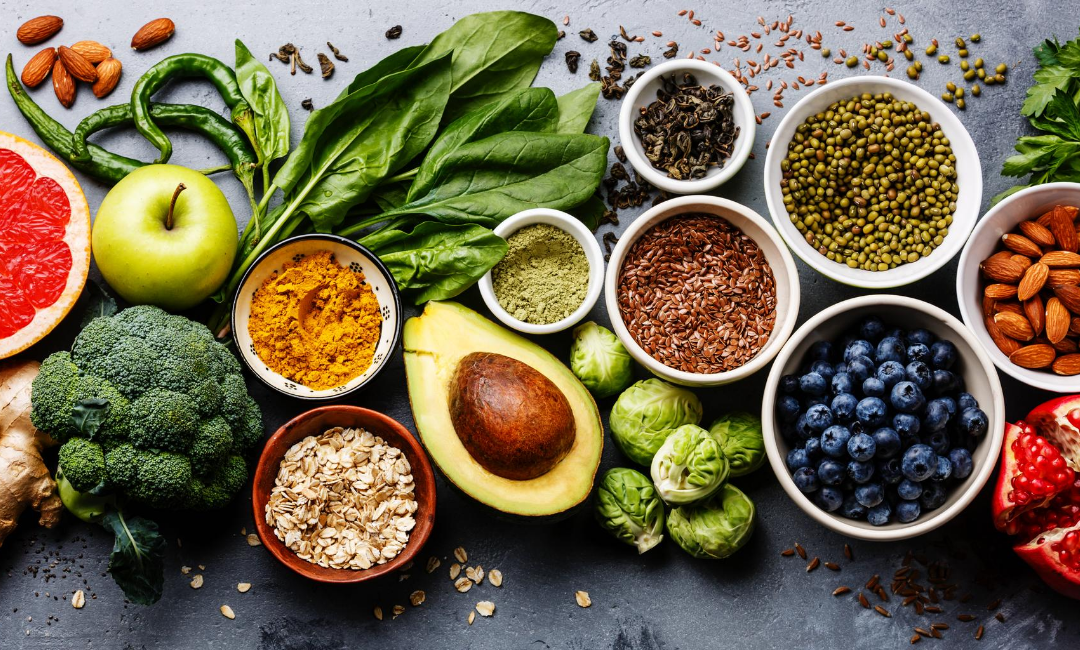The Mediterranean diet is considered one of the healthiest diets in the world. It is a heart healthy as associated with longer life expectancy, lower cardio vascular risk incidence[1][2] and also shown to reduce the likelihood of depressive symptoms in older adults[3].
One of the characteristics of this diet is that it emphasises on including more plant based foods (vegetables, fruits, nuts, legumes and unprocessed cereals). Fish and poultry are eaten in low/moderate amounts and the lowest consumption is of red meat and sweet foods. Dairy is also consumed in low to moderate amounts. And of course, it is well known for olive oil, which is high in Omega 9, that has anti-inflammatory properties[4].
As it is the traditional diet of the many countries around the Mediterranean there are of course variations on what is eaten.
What I like about this way of eating is that it does not exclude major food groups like some diets and it focuses on including large portions of vegetables. Most importantly you can still be social when following it, as it is based on sharing meals.
It is so easy to incorporate aspects of the Mediterranean diet using these ten tips.
- Eat whole fresh foods closest to their natural state instead of processed foods.
- Instead of counting calories, include more fresh vegetables in your meals. These foods are usually more nutrient dense and lower in calories and fat. Make a salad by slicing some tomatoes, cucumbers, peppers and combining with leafy greens and mix in a vinaigrette dressing. Or you can have your vegetables cooked; baked vegetables with herbs, stir-fried vegetables or make vegetable soups.
- Eat some fresh fruits daily which are high in vitamins, antioxidants and fibre.
- Instead of desserts have a variety of fruits.
- Include legumes as these are a good source of protein and fibre. Also, do try to have some vegetarian meals every week. You could start with once a week and increase to twice/thrice a week. Some simple suggestions are lentil soup, bean stew or chickpea salad.
- Have whole grains instead of the processed grains. Try brown rice, barley, oats or whole wheat.
- Reduce the amount of red meat you have and have moderate amount of chicken, fish, dairy and eggs.
- Make water your main drink that you have through the day.
- You can enjoy a glass of wine with your meal but don’t drink excessively as this negates its benefits.
- Have healthier fats such as olive oil, olives, avocados, nuts and seeds.
The traditional Mediterranean way of living focused also on lifestyle, living within a community, sharing meals with others and staying active through the day.
Often when working with clients I see that they take just one food, for example using olive oil and expect that alone to make the difference. To see the benefits, you need to include as many of these food groups as you can. With time, it becomes easier, so make your changes a step at a time.
And lastly as with everything that we do it is important that you keep it interesting and have a variety of foods; use fresh herbs and spices when cooking so you don’t get bored of what you are eating.
Want to see results?
If you want to get healthier and want to know how I can support you to get to your goals, send me an email and we can set up a call to discuss this. Or you can book a call when you CLICK HERE.
[1] Tammy Y N Tong, Nicholas J Wareham, Kay-Tee Khaw, Fumiaki Imamura, Nita G Forouhi. Prospective association of the Mediterranean diet with cardiovascular disease incidence and mortality and its population impact in a non-Mediterranean population: the EPIC-Norfolk study. BMC Med. 2016;14(1):135.
[2] Miguel A. Martinez-Gonzalez and Nerea Martín-Calvo. Mediterranean diet and life expectancy; beyond olive oil, fruits and vegetables Curr Opin Clin Nutr Metab Care. 2016 Nov; 19(6): 401–407.
[3]K.A. Skarupski, C.C. Tangney, H. Li, D.A. Evans, and M.C. Morris Mediterranean Diet and Depressive Symptoms Among Older Adults Over Time J Nutr Health Aging. 2013; 17(5): 441–445.
[4] Medeiros-de-Moraes IM, Gonçalves-de-Albuquerque CF, Kurz ARM, Oliveira FMJ, de Abreu VHP, Torres RC, Carvalho VF, Estato V, Bozza PT, Sperandio M, de Castro-Faria-Neto HC, Silva AR. Omega-9 Oleic Acid, the Main Compound of Olive Oil, Mitigates Inflammation during Experimental Sepsis
Oxid Med Cell Longev. 2018 Nov 13;2018:6053492.
